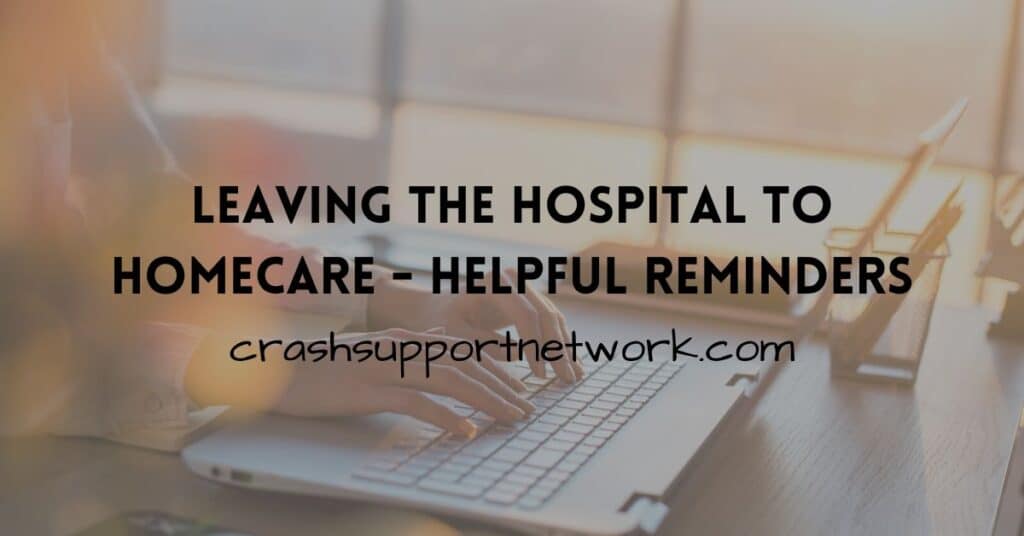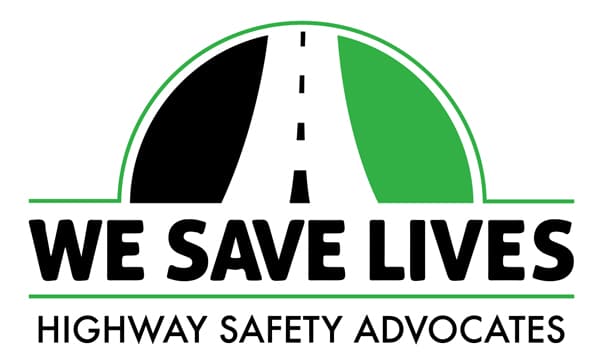
Leaving the hospital to homecare, you may be so overwhelmed with everything that is going on around you that you may have a hard time focusing when your doctor informs you that it is time to take the necessary steps to begin your discharge. Most people do not like staying in the hospital and although this may sound like good news to be discharged to recover elsewhere, you should be prepared for your discharge —whether the discharge is to go home, to a rehabilitation facility or a nursing home, it is critical to your health and well-being.
From one survivor to another, here are some helpful reminders to keep in mind when leaving the hospital to homecare:
- Find out the date and time that you are being discharged and make necessary arrangements for a family member or friend to pick you up.
- Make sure you have appropriate clothes to wear when you are discharged and your house keys (if necessary). Ask a family member or friend to pick up some loose clothing from your residence for you to wear along with proper foot ware.
- Make sure you have all your belongings that you brought with you to the hospital including medications and remember to retrieve any belongings or valuables that may have been left in the locker in your room.
- Make sure your family member or friend is aware of the discharge area and where to pick you up.
- Make sure you have all of your discharge prescriptions and discharge documents. You also need to make sure the hospital returns your Health Card and/or Insurance Card. When I was hospitalized, my health card went missing and it was challenging to go through the process of obtaining a new one while I was trying to recover.
- Remember to have all the supplies that you need to recover and identify who will assist you at home.
- If a physician verbally states the number of days, weeks or months that you will be off of work to recover, make sure to ask for this in writing so you have the necessary documentation for your employer and/or legal representative.
- If you or a family member made contact with a personal injury lawyer while you were hospitalized, make sure to inform them when you are being discharged as they may want to visit you in the hospital before you leave to start planning for any help you may need.
- Keep any paperwork that you receive from the hospital in a folder and once you get home, try to keep all of your paperwork together so you have easy access to locate documentation that you may need during your recovery.
- Make sure you have made your follow-up appointment(s) with your physician or any specialists that may have treated you in the hospital.
Resting During Recovery
Part of recovery from any kind of trauma is the ability to fully rest and recover. Life is completely disrupted when you are involved in a motor vehicle crash and even little things will be hard to accomplish. It’s important to let go of as much as you can and let someone else take care of things in order to allow yourself to get the rest you need. Another reminder is that if people come to visit you while you recover, it is not your responsibility to act as host/hostess to them. It’s also perfectly acceptable to ask people not to visit, or leave when you need to rest. While you are recovering from your collision, the need for outside support may also become necessary. Leaving the hospital to homecare is extremely beneficial and may include many professional support services. One of those services may be a Personal Support Worker.
What Does a Personal Support Worker Do?
A personal support worker (PSW) provides 24-hour care support and medical guidance when needed. PSW’s review therapies, medications and day-to-day health and hygiene. When you are injured, PSW’s can help you shower, brush your teeth, manage your hair and help with personal hygiene.
PSW’s work to maintain the standard of living and comfort for you. Whether at home or in a rehabilitation facility, they improve livability in your surroundings by recommending the installation of hand rails, ramps, the repositioning of furniture and even meal preparation when needed.
Some of their duties may include:
- Providing personal care (aid with movement, personal hygiene, bathing, dressing and undressing).
- Administering daily health-related duties (medications and injections).
- Meal preparation and planning, feeding or assistance with eating and drinking.
- Managing routine housekeeping tasks (laundry, making your bed, washing dishes).
If you have any loss of mobility due to an auto collision, home visits from a compassionate professional caregiver can be a great help to someone who has experienced such a traumatic event. Leaving the hospital to homecare is an important step in your recovery journey.
S. Dawne McKay is a survivor of a horrific crash that changed her life forever. Dawne shares her personal journey as a Crash Survivor Blogger and also collaborates with crash survivors as Guest Bloggers allowing them an opportunity to share their stories. Dawne is also the author of the book, “Talk Crash to Me – What to Expect After Surviving a Collision and How to Manage Your Recovery” which is available for purchase on Amazon.
The Crash Support Network is a unique one-of-a-kind website consisting of an online support group, a crash survivor blog, a quarterly newsletter, “Sharing Our Recovery” as well as highly informative articles. Our website is based on relationship-building and puts the needs of survivors first by creating a helpful resource for victims and survivors of motor vehicle crashes.





